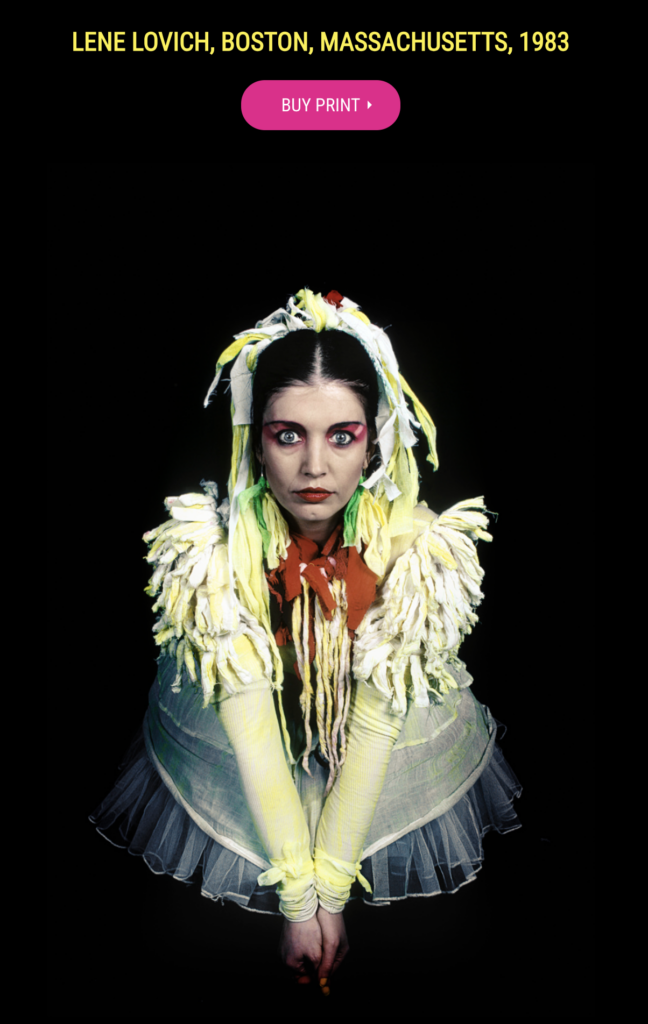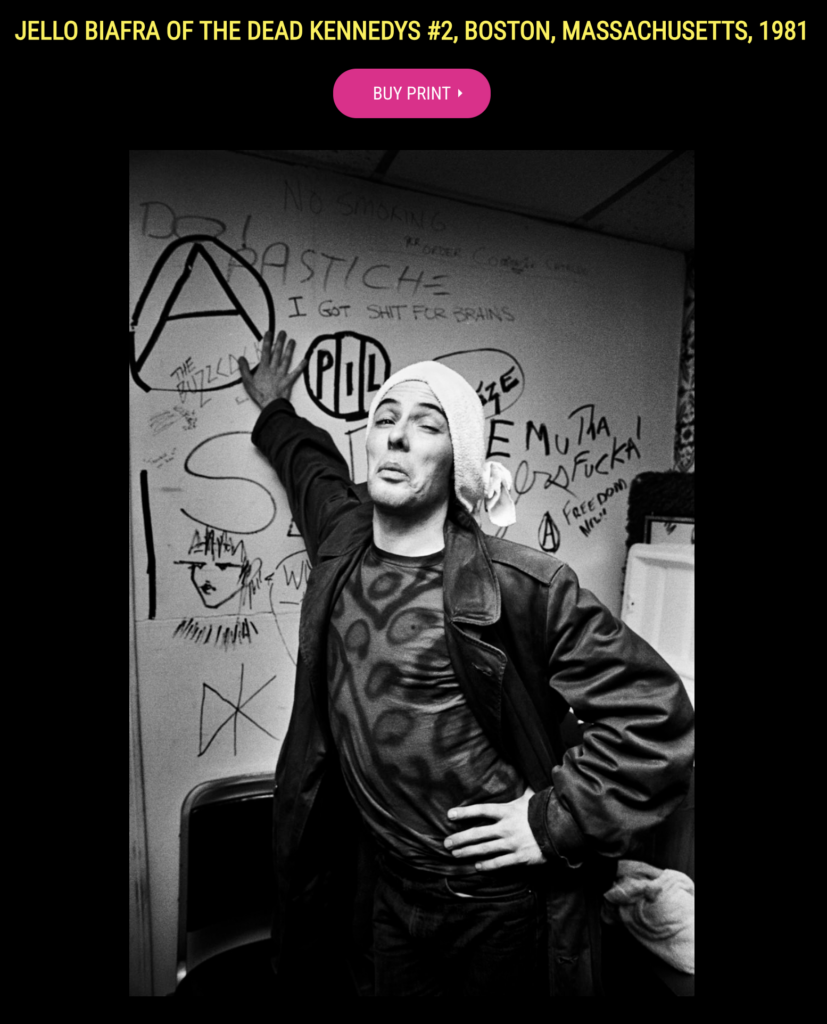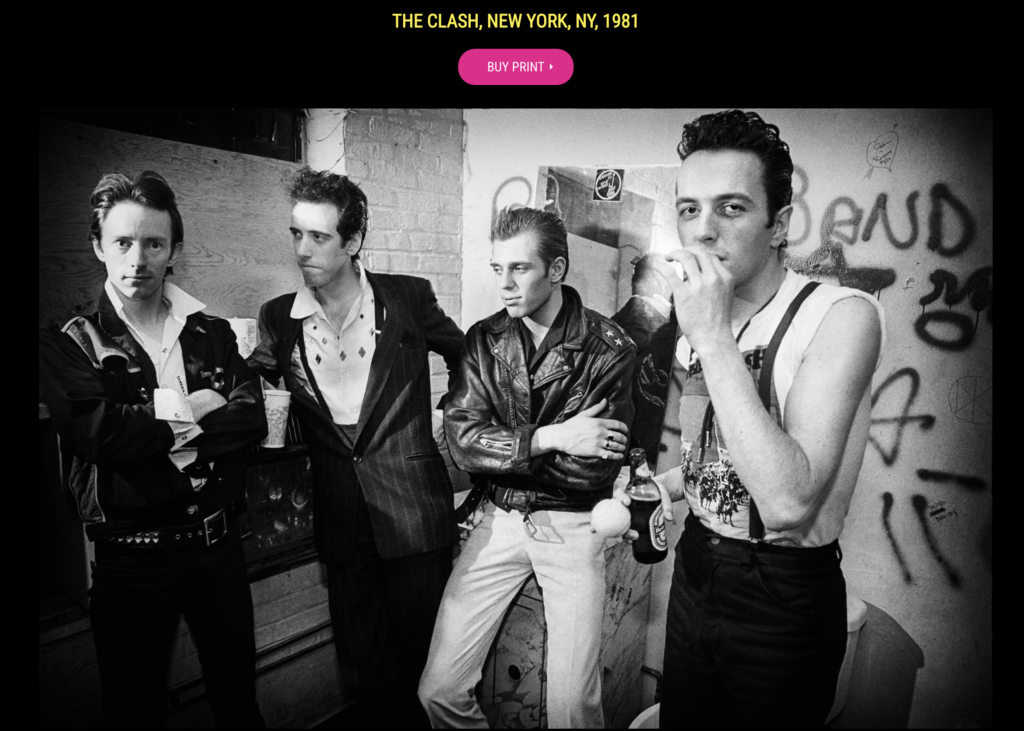Punk was a cultural revolution that was reflected beyond the stage, music, and lyrics. It was a movement of rebellion that was visual and captivating in Punk Photography. By the mid-1970s Rock and Roll, once the voice of rebellious youth, was quickly becoming an antiseptic corporate product to boost earnings for shareholders.
While disco, arena rock, and packaged music was making a home in the centers of commerce in New York, LA, the UK and cities around the world, Punk was carving out its anti-establishment niche in the ungentrified neighborhoods that were home to the new wave artists and musicians.
Punk embraced the raw, gritty, industrial neighborhoods that were undiscovered by corporate rock and real estate gentrification. In Boston it centered around clubs like the Underground in the Allston neighborhood, in New York, CBGBs in the East Village, in London it was the Camden neighborhood.
Although separated by thousands of miles the neighborhoods reflected the iconography of Punk. Art deco buildings in disrepair, empty lofts, industrial and discarded retail spaces, small bars with and without performance spaces were the settings for the growth of punk.
Capturing the Music Through Photographs of the Iconography of Punk
The photography of Michael Grecco was crucial in capturing the iconography of punk. Punk music can be played on a turntable, Spotify, or hundreds of other techno platforms today, it is only the photographs of the era with all the glory of its iconography that can invoke the feelings beyond the recordings.
Through the lens of his 35mm camera, the Grecco photographs captured the raw, unrepentant, grit of Punk beyond the music. The buildings, club interiors ridden with graffiti, industrial spaces turned into living places, decorative wrought iron from another time and place all lend their presence to the iconography of punk captured in the photography of Michael Grecco.
Far from the glitz of uptown funk, disco and the psychedelic light shows of corporate arena rock, PUNK was being created in the no uncertain realm of Black and White. Micheal Grecco was at the right time in place in his photographic art to capture the Punk Scene in its intimacy in vivid black and white photographs.
Punk in Black and White
Only a 35mm camera in the hands of a practiced photographer can capture the impromptu moments on the stages of clubs where punk was born.
Today Michael Grecco is curating his massive photographic collection of the Days of Punk to offer high quality prints of the punk era that he witnessed through the lens of his camera. For those who wax nostalgic about a time and place in their youth, or others who have discovered this magical time in rock, prints by Michael Grecco are living monuments to the iconography of punk.
Punk was a cultural revolution that was reflected beyond the stage, music, and lyrics. It was a movement of rebellion that was visual and captivating in Punk Photography. By the mid-1970s Rock and Roll, once the voice of rebellious youth, was quickly becoming an antiseptic corporate product to boost earnings for shareholders.
While disco, arena rock, and packaged music was making a home in the centers of commerce in New York, LA, the UK and cities around the world, Punk was carving out its anti-establishment niche in the ungentrified neighborhoods that were home to the new wave artists and musicians.
Punk embraced the raw, gritty, industrial neighborhoods that were undiscovered by corporate rock and real estate gentrification. In Boston it centered around clubs like the Underground in the Allston neighborhood, in New York, CBGBs in the East Village, in London it was the Camden neighborhood.
Although separated by thousands of miles the neighborhoods reflected the iconography of Punk. Art deco buildings in disrepair, empty lofts, industrial and discarded retail spaces, small bars with and without performance spaces were the settings for the growth of punk.
Capturing the Music Through Photographs of the Iconography of Punk
The photography of Michael Grecco was crucial in capturing the iconography of punk. Punk music can be played on a turntable, Spotify, or hundreds of other techno platforms today, it is only the photographs of the era with all the glory of its iconography that can invoke the feelings beyond the recordings.
Through the lens of his 35mm camera, the Grecco photographs captured the raw, unrepentant, grit of Punk beyond the music. The buildings, club interiors ridden with graffiti, industrial spaces turned into living places, decorative wrought iron from another time and place all lend their presence to the iconography of punk captured in the photography of Michael Grecco.
Far from the glitz of uptown funk, disco and the psychedelic light shows of corporate arena rock, PUNK was being created in the no uncertain realm of Black and White. Micheal Grecco was at the right time in place in his photographic art to capture the Punk Scene in its intimacy in vivid black and white photographs.
Punk in Black and White
Only a 35mm camera in the hands of a practiced photographer can capture the impromptu moments on the stages of clubs where punk was born.
Today Michael Grecco is curating his massive photographic collection of the Days of Punk to offer high quality prints of the punk era that he witnessed through the lens of his camera. For those who wax nostalgic about a time and place in their youth, or others who have discovered this magical time in rock, prints by Michael Grecco are living monuments to the iconography of punk.


